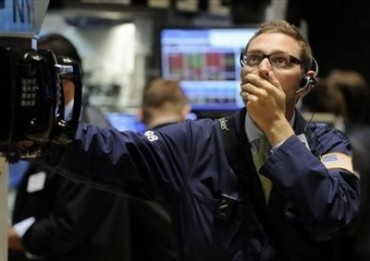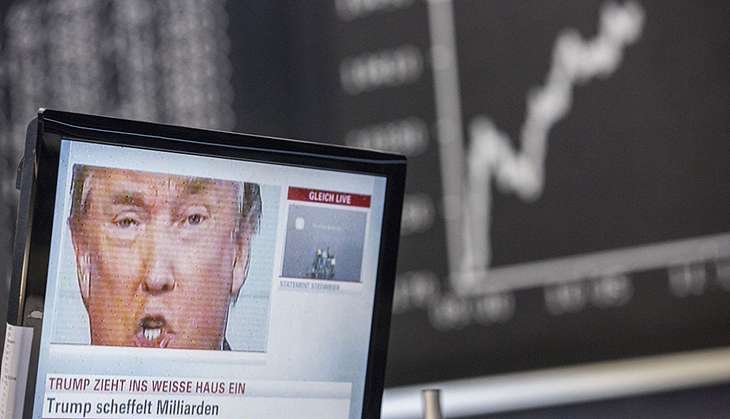The following are the expectations for today’s US December jobs reports as provided by the economists at 15 major banks.
Goldman: Change in Nonfarm Payrolls (Dec): 230k Unemployment Rate (Dec): 5.7%.
Deutsche: Change in Nonfarm Payrolls (Dec): 200k Unemployment Rate (Dec): 5.7%.
Morgan Stanley: Change in Nonfarm Payrolls (Dec): 240k Unemployment Rate (Dec): 5.7%.
Nomura: Change in Nonfarm Payrolls (Dec): 232k Unemployment Rate (Dec): 5.7%.
SEB: Change in Nonfarm Payrolls (Dec): 230k Unemployment Rate (Dec): 5.7%.
Citi: Stay long USD into payrolls. With 240k the median expectation (Citi 220k), we think pressure points touch on both the headline print and revisions with 250k + 40k revisions and 200k – 40k revisions respectively sensitive levels. For policy, wages (0.2%MoM e) and unemployment (5.7% e) could matter more. Undershoots on unemployment and ticks up in wages will be very positive USD and potentially hit higher beta FX.
RBS: Market focus is obviously on US NFPs. Consensus is ~240k; RBS estimate is 225k with upside risks on holiday hiring. Unemployment rate likely to fall by 0.1pp to 5.7%. short EUR/USD and long USD/ZAR on a strong number (225k+). Long AUD/USD on a disappointment.
BNPP: Our economists are more optimistic than the market, expecting a 275k gain in December nonfarm payrolls, just below the impressive three-month trend of 278k. The unemployment rate should fall to 5.7% and as labour market slack is eroded we suspect the Fed and market participants will increasingly focus on measures of wage growth. The bar for the employment data to alter the Fed’s plans to hike in mid-year appears quite high – a stronger reading is unlikely to rush the Fed into move in Q1 given the low CPI profile, while one weak report would do little to alter the picture of what has been a very robust trend. The USD rally appears set to continue in 2015, but with markets already positioned for the move, tactical flexibility if warranted in our view.
SocGen: All the forward indicators we have seen point to the main themes being maintained – strong NFP, falling unemployment and subdued wage growth. We’re looking for 305k 5.6% and a +0.1% hrly earnings increase which should keep the annual rate at 2.1%. That of course, is much better in real terms now, than it was a year ago! The 2013 monthly average NFP gain was 194k, the average so far in 2o14 (Jan-Nov) is 241k, an indication of the acceleration we have seen.
BTMU: Our NFP model predicts an NFP print today of 210k, which is a little less than the consensus 240k – which coincidentally is exactly the discrepancy for the whole of 2014. The model average for 2014 is at 211k while the actual NFP average for 2014 stands at 241k. So our model is pointing to something around consensus which would certainly help confirm steady jobs growth in the US and would confirm that nearly 3mn jobs were created in 2014. Other employment variables are also pointing to continued strength.
Credit Suisse: The recent payroll trends look impressive, with ten consecutive increases of at least 200K, the longest such streak since the mid-1990s, and the 6- and 12-month averages at cycle highs. We project another strong month for nonfarm payrolls at 250K (Consensus: 240K). We expect the unemployment rate to remain steady at 5.8% (Consensus: 5.7%). We look for a 0.2% mom improvement in average hourly earnings (in line with consensus), which would push the year-on-year rate to 2.2%, the high end of the 1.9%-2.2% range of recent years.
BofA: While we look for another strong jobs report, we do not expect a repeat of November which showed job growth of 321,000. We look for nonfarm payrolls to increase 250,000 in December, which is in line with the 6-month average of 258,000. We look for private payrolls to increase 240,000 and the public sector to add 10,000 jobs. The leading indicators suggest continued strength in the labor market with the conference board labor differential narrowing two points to -10.6, initial jobless claims continuing to fall and manufacturing surveys showing further growth. Among the components, we anticipate a slowdown in retail hiring after the growth of 50,000 in November. It seems that the holiday shopping season started earlier this year, prompting greater hiring in November, but likely less in December. We also see risk of a slight slowdown in manufacturing job growth as suggested by the regional surveys. Along with solid job growth should come a decline in the unemployment rate. We look for the unemployment rate to slip to 5.7% from 5.8%. Household job growth is extremely noisy, increasing only 4,000 in November after average growth of 458,000 in September and October. We think we should see a bounce higher in December, which will likely push the unemployment rate lower. We also look for little change in the labor force participation rate, which has been moving sideways in a choppy fashion in recent months.
Standard Chartered: ‘Regression to the mean’ is our expectation for Friday’s employment data (08:30 ET). November’s 321,000 non-farm payroll (NFP) print is unsustainable, in our view. We look for a drop to 240,000 in December, closer to trend (the one-year average in payrolls is 228,000/month). This would be consistent with recent US data, such as softer ISM surveys and durable goods data, which suggest that Q3-2014’s GDP outperformance (5.0% q/q SAAR) may not have been repeated in Q4-2015 and may not be sustained in Q1. Still, a 240,000 payroll reading would be interpreted as robust. The unemployment rate is likely to resume its downtrend after plateauing at 5.8% in the past two months. We see a 0.1ppt drop to 5.7%, but note that a planned annual revision to the household survey introduces higher-than-usual uncertainty.
Credit Agricole: We look for a 215K rise in December nonfarm payroll employment, with the unemployment rate holding steady at 5.8%. Based on data at hand, nonfarm payroll growth likely moderated in December, rising 215K following a 321K advance in November. Initial unemployment claims fell to 289K in the week ending 13 December, down 6K from the November average. This is supportive of +200K payroll gains. Employment indexes on the Empire State and the Philly Fed manufacturing surveys are consistent with solid manufacturing employment, with both remaining at positive levels in December. However, manufacturing jobs likely rose by less than the 28K pick-up in November. Private service-providing payroll growth also likely softened from the previous 266K increase (the strongest since January 2012), though we will confirm our projection on incoming service-sector survey data.
Danske: The main event is the US employment report for December. We expect total payrolls to show a gain of 195,000 in December, which is below consensus expectations of 240,000. The main reason for our below-consensus call is that we expect some payback from the strong November gain of 321,000
Related Posts
67
Employers in the U.S. boosted payrolls and the unemployment rate held at 6.7 percent even as more Americans entered the labor force, showing steady progress that will prompt Federal Reserve policy makers to continue reducing stimulus while keeping interest rates low. Payrolls rose 192,000 last month after a 197,000 gain…
Tags: payrolls, employment, unemployment, jobs, average, growth, payroll, market, rate, usa
61
Perhaps the most notable development in the run-up to Friday's jobs report is just how low the bar has been set. The fact that the survey period over which the U.S. Bureau of Labor Statistics collected data for the report (the week that included the 12th of February) coincided with…
Tags: data, jobs, consensus, market, payrolls, employment, usa, nfp
58
The Labor Department’s initial estimate of August job growth on Friday is expected to show another solid month of hiring. Economists surveyed by The Wall Street Journal forecast the economy added 225,000 jobs, which is roughly in between the 12-month average of 214,000 and the 3-month average of 245,000. The unemployment…
Tags: average, jobs, rate, unemployment, growth, usa, nfp
57
U.S. economy added 533,000 jobs during the first three months of the year What do we need to analyse ? -To keep pace, job creation would need to accelerate in April -Watch which sectors of the economy are adding jobs. -Flirting with Full Employment -Average hourly earnings -The participation rate…
Tags: nfp, jobs, usa, rate, average, employment
56
Tomorrow brings the January 2014 employment report - NFP - . The usual caveats apply: The monthly change in payrolls is a net number and represents only a fraction of the churn in the labor market. The employment data is heavily revised. The preliminary number can greatly understate or overstate…
Tags: employment, nfp, change, payrolls, market, unemployment, data







